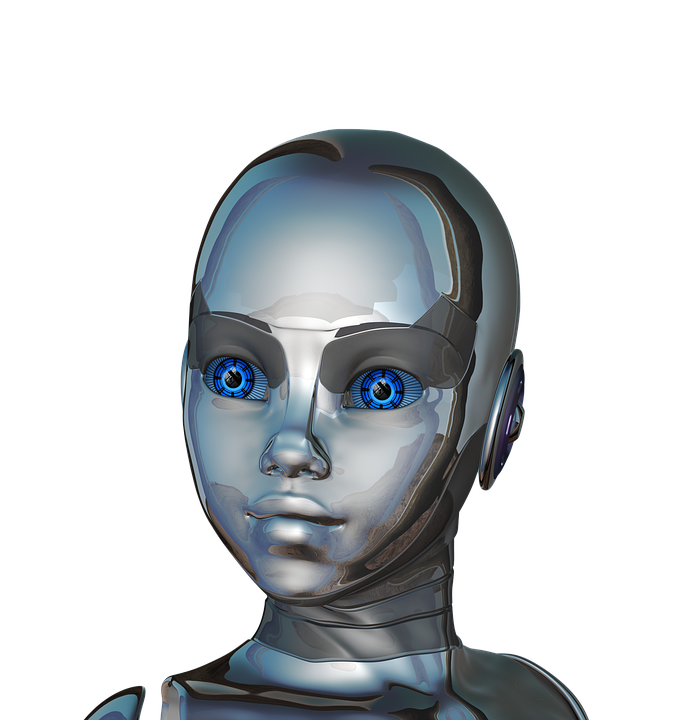
Year of Jubilee: Look in Each Direction
May 3, 2023
No Funeral Cards Yet!
June 2, 2023When I was a little girl, I was in love with fairy tales. The idea of other worlds – like those of Sleeping Beauty or Rapunzel – captured my imagination when mom read these stories to me. My dad, on the other hand, nurtured my scientific side, always helping me to figure things out, like how you put oil in your car or how the toilet works.
You would think that science fiction – taking science and logic to a wildly imaginative new level – would be my thing, but it wasn’t. Learning about robots not on my radar until some of us went to see the 2001 Space Odyssey at the theater. We met HAL, a computer that knew everything, told humans what to do and controlled everything in society. It was a terrifying thought, but I pacified myself, saying, “This isn’t real – it’s Hollywood!”
Years later, one Saturday afternoon I decided to take my four-year-old nephew to the mall to give his mom a rest. (I decided that four was a safe-enough age for me to deal with.)
He was intrigued by a full-sized animated robot at the front of the toy store that moved its arm, legs and head. It was made from an erector set, but looked almost human. He got behind it and wanted to see how it worked. His fascination never faded. He is now a computer specialist working for the Deloitte Corporation as a global computer programming trainer.
Thirty years ago, it was a toy. Now, I can see it was the start of something that has gone beyond toys and way beyond erector sets to fully computerized, life-sized robots that move, dance, jump, turn, and do things almost like a human or an animal on command.
I saw a robot dog that rolled over, wagged its tail, sat and jumped up on command. Amazing! There was a large segment of such creations, which are based on Artificial Intelligence, or AI, on 60 Minutes a few months ago and Anderson Cooper was as intrigued as I was.
We’ve had AI around for some time, through iPhone giving us Siri and Amazon introducing us to Alexa, but the jump to robots has taken off very quickly.
Father Thomas Berry, C.P., author of The Universe Story, predicted an era called The Technozoic Era. He cautioned us humans to save our species and its identity by entering instead into the Ecozoic Era, a time characterized by a love for earth and what is real, centered in the evolution of events beginning with the start of the Universe some 13.7 billion years ago. I know that robots don’t fit into this category.
The local newspaper, The Toledo Blade, carried an article about Geoffrey Hinton, a Canadian who first began AI in 2012. He worked for Google and is known as the “Godfather of AI.” He saw the potential in AI as a powerful tool that could be used to help many things. For example, robots would be able to find people who were trapped in mines, deliver food in dangerous territory and help fight an opponent without the loss of human lives. It didn’t take much imagination to also realize, as he soon did, that this power, in the wrong hands, would be a terrible threat to the world.
He resigned from Google. Now sorry for his work in AI, Hinton now speaks out about its dangers. The word ‘cyborg’ surfaced, a word from Star Trek and Star Wars, representing a species of technological humans that were a collective and were controlled by outsiders to all act the same. Would someone control cyborgs from one country to fight others from another country? Would city leaders control all its members as a collective? Would cyborgs farm and control food crops? Hinton said this threat is more urgent than climate change and he is so sorry to have developed it. HAL, the robot, of 2001 Space Odyssey has now become a reality. Geoffrey Hinton is now a so-called AI Doomer, so called, as his neural network now creates technology that can think! Scientists say that it can think and express some emotions with more to come. Hinton left Google so he could better express the dangers of using AI. Look for articles on ChatGPT. We all need to keep abreast of this as it is extremely serious and dangerous to all walks of life.
On a more positive note, I am reading a book called “The Science of Matter” by Maurice Pierre Crosland, a physicist and chemist, telling us that we are understanding that matter matters. The material of our bodies, aka matter, all of it has consciousness which cannot be copied by technology. No matter how highly developed robots may be, the consciousness in our matter cannot be achieved by technology. More studies along these lines are revealing truths about the matter which all living creatures possess. This, hopefully, will keep us from becoming robots.
To the readers of this blog, I caution you to keep abreast of this topic for the future of humanity and all created life! Our future depends on it!
Sr. Rosine Sobczak OSF
Associate Professor Emerita
Lourdes University







